Buying a gaming PC can be a tough task if you don't have any technical knowledge. This buying guide will help you understand your options for our pre-built gaming PCs, and also give you a quick overview of the components inside (and what they do!).
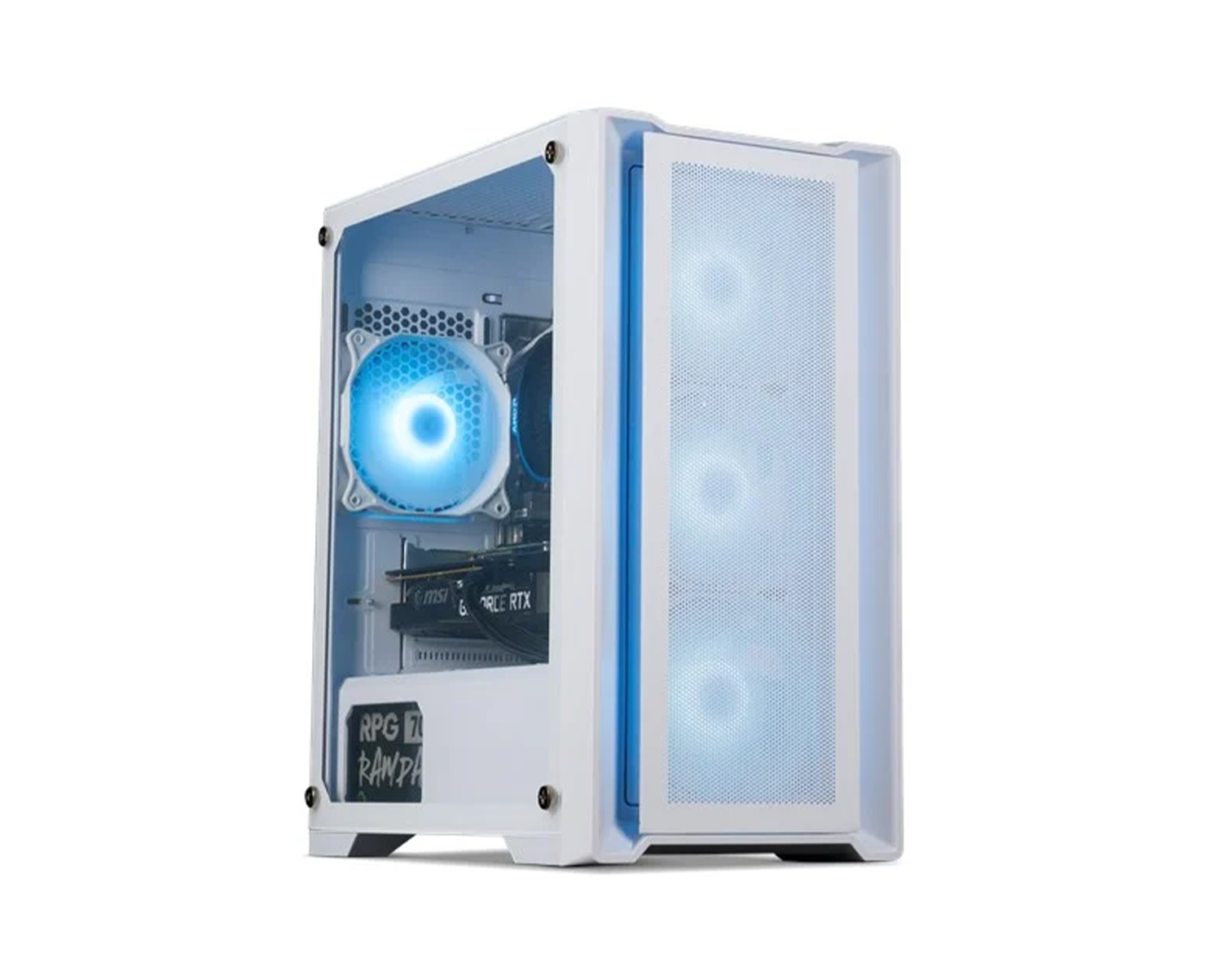
There are two options for our pre-built gaming PCs - Next Day Gaming PCs and Custom Built Gaming PCs.
Next Day PCs mean "Less waiting, more gaming". Our systems are in stock and ready to ship via next day courier, with specifications that offer award winning performance and value for money without the wait.
If you want to choose your own components (see below), you can opt for a Custom Built PC, built by CCL's expert IT engineers with zero compromise on the quality of components. Our Custom Built gaming PCs have the fastest build times, and our experts are always on hand if you need assistance with any hardware options.
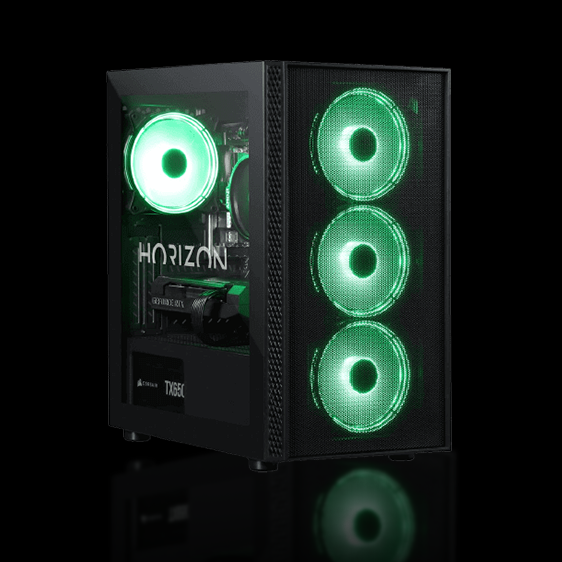
Whether you choose a Next Day gaming PC or a Custom Built rig, you are buying a Horizon PC.
Our range of Horizon Gaming PCs are designed from the ground up to deliver the very best gaming performance - with a focus on value for money. Our hardware experts ensure your Horizon system features the optimal combination of motherboard, processor, memory, graphics card and storage, specifically designed for the job - from competitive Esports to AAA Ray Traced gaming.
Horizon gaming PCs have multiple price points, starting from entry level (under £600) up to high end battlestations (over £2000). This makes the Horizon range perfect for a first PC, or a gaming PC that will also be used for study.
Horizon systems are built and tested extensively by our experts in-house, and all come with a 3-year warranty. Both brands offer hardware customisation options, so you can design the Horizon system that is perfect for your gaming needs.
Chillblast Pre-built Gaming PCs
At CCL, you can also choose from a range of Chillblast PCs, designed and built by the UK's most awarded custom PC builder. Chillblast gaming PCs are designed to play the most demanding AAA games and deliver the highest performance possible.
Chillblast x Fnatic - The Choice of Champions.
The Chillblast x Fnatic PCs range of systems are designed and built by Chillblast's experienced team and Fnatic Esports athletes, enabling you to play and compete using the same hardware that professional gamers rely on. These near-silent systems deliver the highest framerates and fastest performance, ensuring you can take your competitive Esports gaming to the next level.
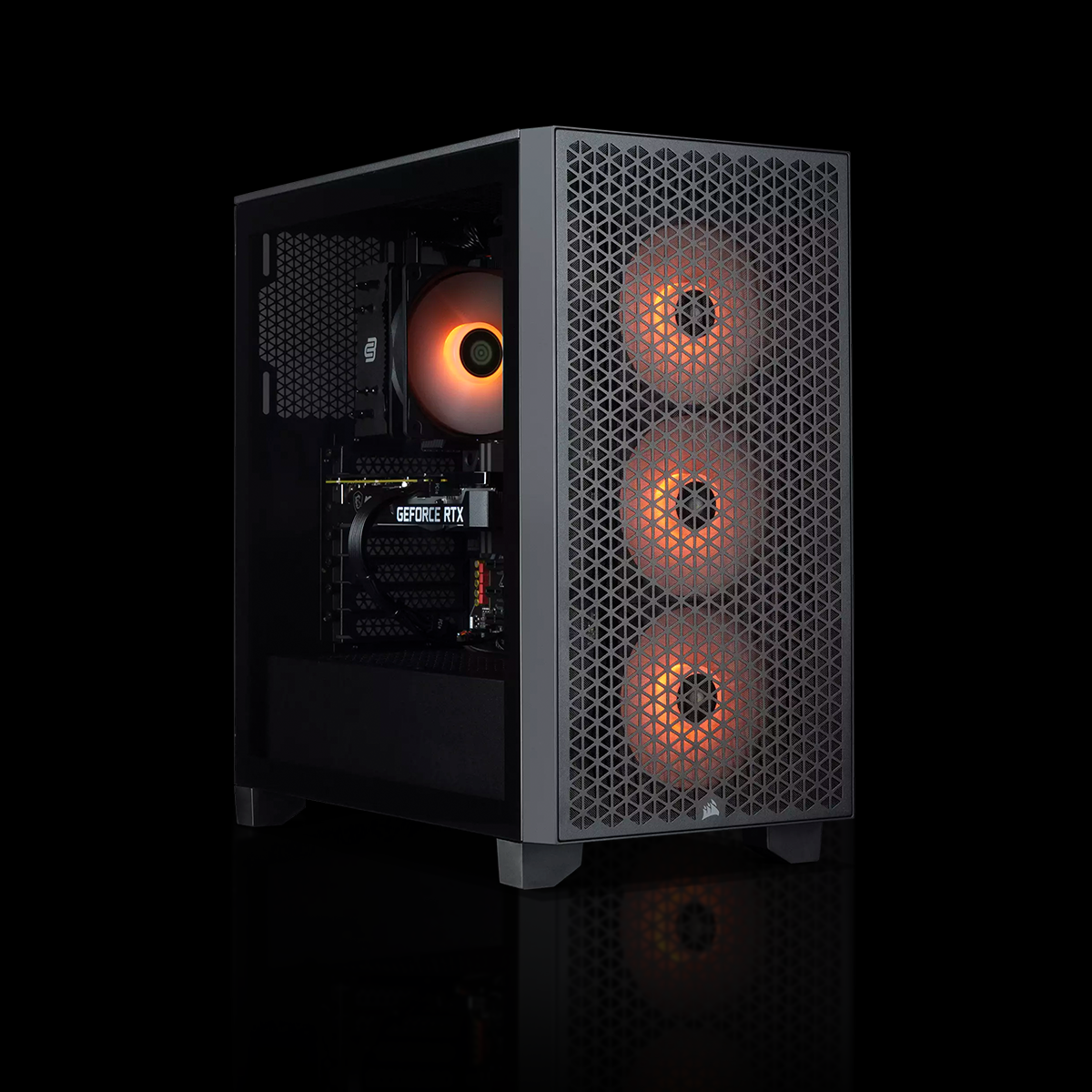
When you're deciding on a new gaming PC, it helps to understand what hardware goes into making one. This way, when you are comparing specifications and price, you know what you're looking at. From the CPU to the RAM, each component is carefully chosen by an expert to work perfectly with each other, and deliver the performance you need.
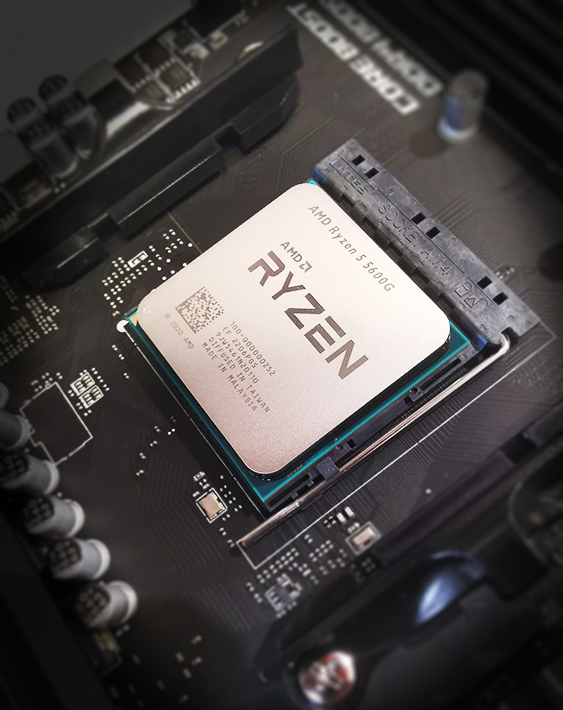
At the heart of any PC is the processor - or CPU. In a gaming PC, the processor handles the workload alongside the graphics card (GPU) and memory (RAM), and choosing a PC with the right processor is very important. Our established relationships with both AMD and Intel mean we can offer the very latest CPU technology at market leading prices. Whether you want to build a custom Alder Lake gaming PC or an excellent value AMD Ryzen gaming PC, we offer a comprehensive range of options for both manufacturers.
At CCL, we build gaming PCs using AMD and Intel processors that allow you to play everything from competitive titles right up to the latest AAA blockbuster games when paired with a graphics card. For 1080p gaming, we recommend nothing less than the Intel Core i5 or i7, or AMD's Ryzen 5 or 7 series, depending on your budget. For 4K gaming and high performance, both the Intel Core i9 13900K and AMD Ryzen 9 7950X3D offer the highest benchmarks in all of the latest games.
By using a processor with integrated graphics, such as AMD's high performing APU processors, you can save money and still play modern games in 720p resolution, with lowered graphics quality and at decent framerates. For the best gaming experience you will, however, need a dedicated Nvidia, AMD or Intel graphics card.
To get the most out of games, a dedicated graphics card is a must. Nvidia's great value GTX graphics cards offer high framerates when paired with an 8-Core or 16-Core processor and at least 16GB DDR4 RAM. The Nvidia GeForce RTX 3060 and GeForce RTX 3070 are two of the most popular graphics cards in today's gaming PCs, and can offer 4k gaming at 60-75Hz. AMD's Radeon RX 6600 and Radeon RX 6650 XT also offer the same low to mid range value for money and 1080p gaming, but better performance in most modern games, having released in 2022.
For high-end gaming, only Nvidia GeForce RTX 30-series, the latest RTX 40 Series and PCIe 4.0/x16 AMD RX 6800/6900 will do. With features such as Ray Tracing, DLSS and superior lighting and shading from Nvidia, and AMD's FSR technology for upscaling of graphics quality, both manufacturers enable gamers to play titles as developers intended. You can expect high framerates and buttery smooth visuals from both RTX and RX graphics cards, taking your PC gaming to the next level.
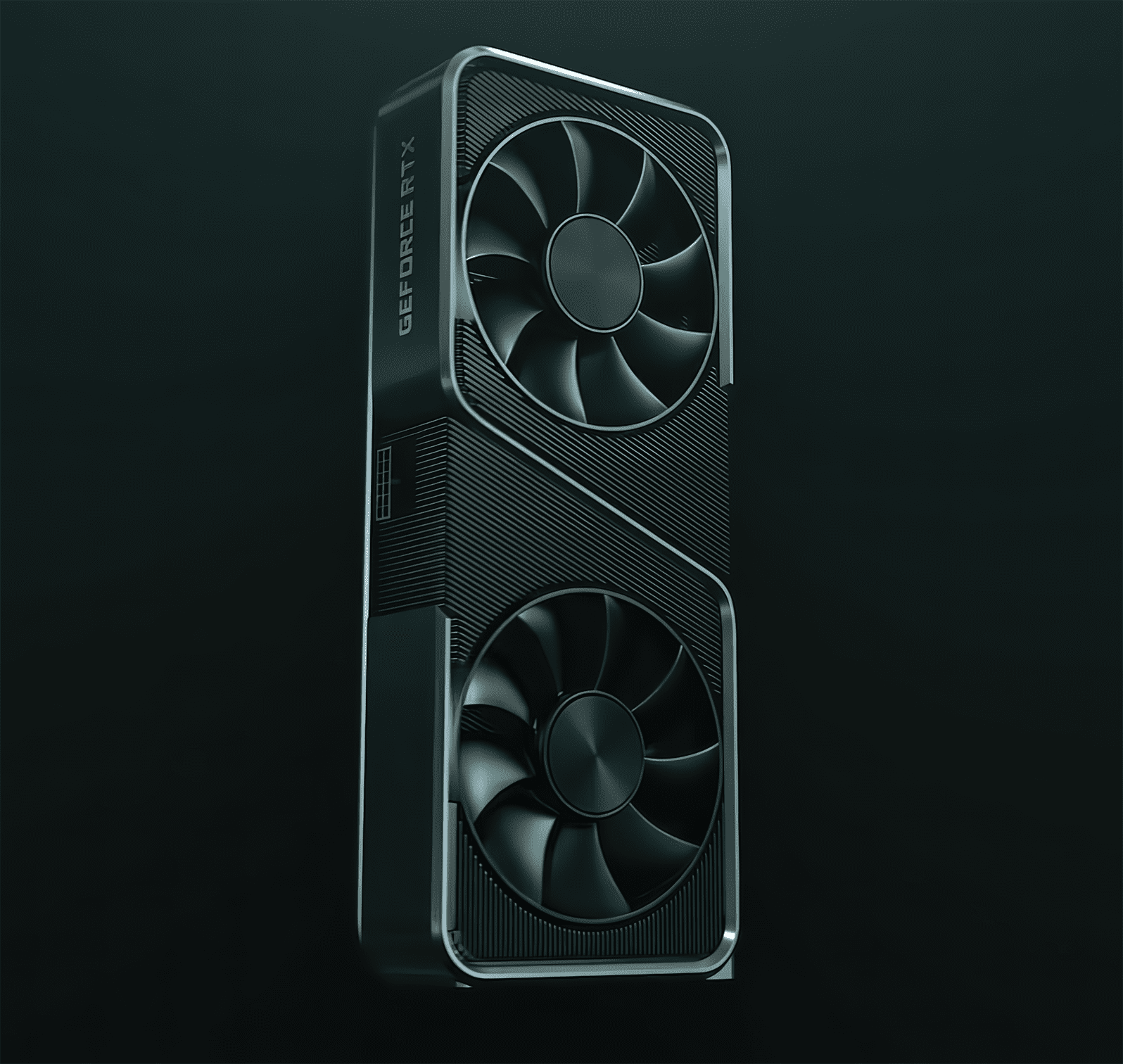
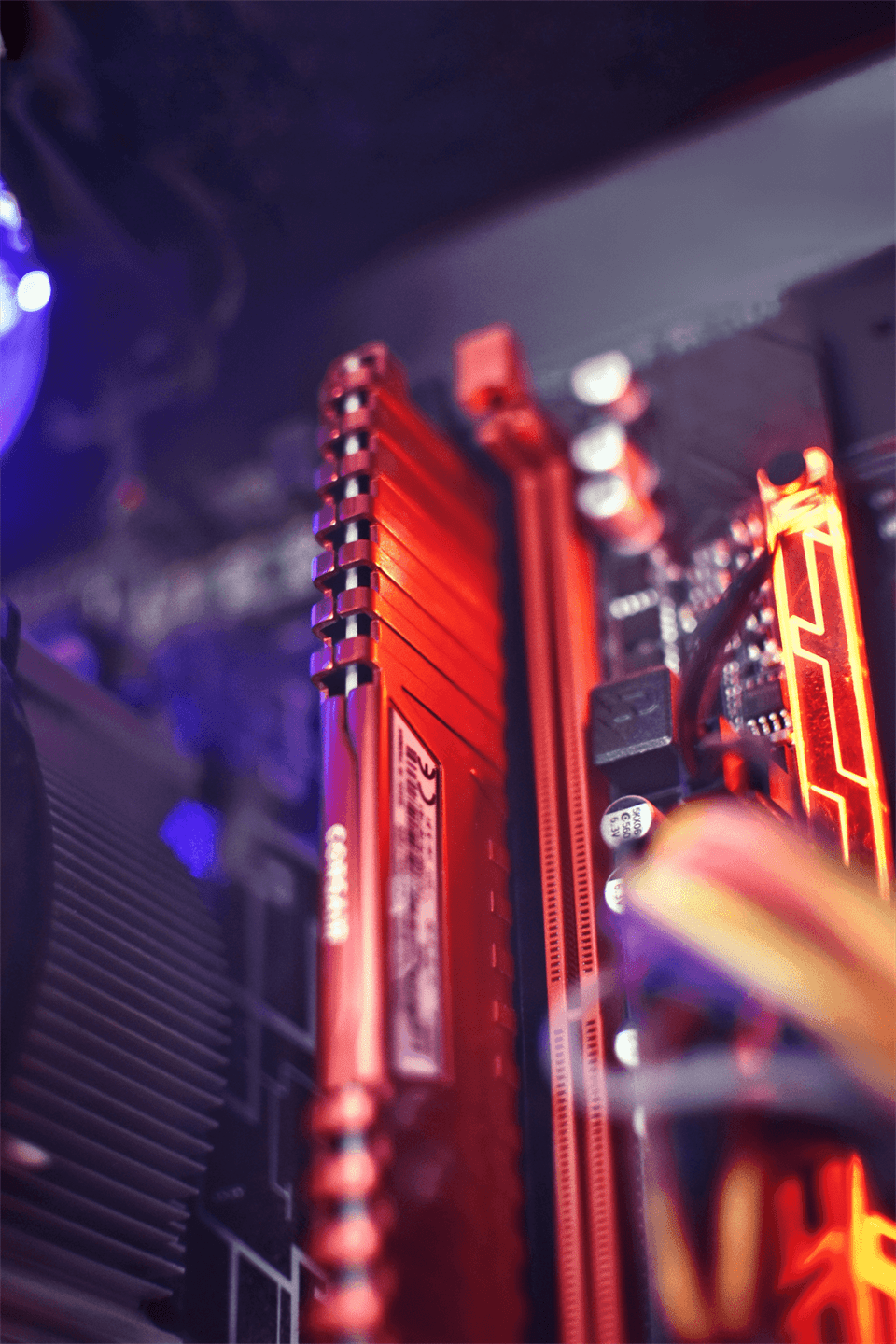
Memory - or RAM - is the vital, short term data storage used by your PC when performing tasks, such as gaming, internet browsing or using applications. Without an appropriate amount of RAM, your games and system as a whole will run sluggish.
RAM stores the information that your computer is currently using, and when you're gaming, will load the data it needs into RAM from your SSD or HDD storage as you play. Though modern graphics cards have substantial VRAM, some of the heavy lifting still takes place in your system RAM.
The performance of your RAM is measured by the clock speed in megahertz (2666MHz, 3200MHz etc.), and denotes the number of cycles your RAM can perform per second (3200MHz = 3.2 billion cycles per second).
The capacity of a stick of RAM ranges from 4GB to as high as 128GB in the mainstream, but motherboards are limited to a maximum number of both sticks and capacity. Most motherboards have two or more slots, and will allow up to 16GB, 32GB, 64GB etc. as a maximum.
DDR4 and DDR5 are the two types of RAM you will see in modern gaming PCs. DDR4 is available up to 16GB but DDR5 can currently have up to 64GB, the latter being the most recent RAM technology and used with high-end motherboards that support up to 512GB in a four-slot motherboard.
For low to mid-range gaming needs, 8GB DDR4 RAM is often recommended, though most recommended game requirements will need 16GB for the game to run optimally. 32GB of RAM will ensure you have enough memory for intensive workloads such as high-end gaming, 1080p HD video editing and 3D design. Anything above 32GB is considered a workstation specification, and seen in PCs that are designed for 4K/8K video editing or 3D animation for example.
The two main storage solutions for gaming PCs are SSD (Solid State Drive) and HDD (Hard Disk Drive). SSD is a newer, faster and longer lasting storage technology, with no moving parts, and all data is stored on a compact stick of memory ranging from 120GB to 16TB. HDD is most commonly used for long term and large capacity storage, and available up to 20TB in the mainstream.
There are different technologies and interfaces which help SSD and HDD perform better, such as PCIe 4.0 NVMe and SATA III. The specification you should look for in a gaming PC is the read and write speeds you can expect from the drive. For example, an SSD may have "Up to 2100MB/s Read, 1100MB/s Write", which means you can load games quickly at 2100MB per second, and store large files quickly at 1GB per second.
Storage technology can be complex, but without getting too technical, the most popular opinion among experts is that you should have your operating system (e.g. Windows 11) and your most-used applications & games stored on SSD, while using a HDD for long term storage (your games back-catalog, photos, videos, lesser used applications etc.). Using a larger capacity SSD is also preferable (around 1TB), but using dual storage is both cost effective and practical.
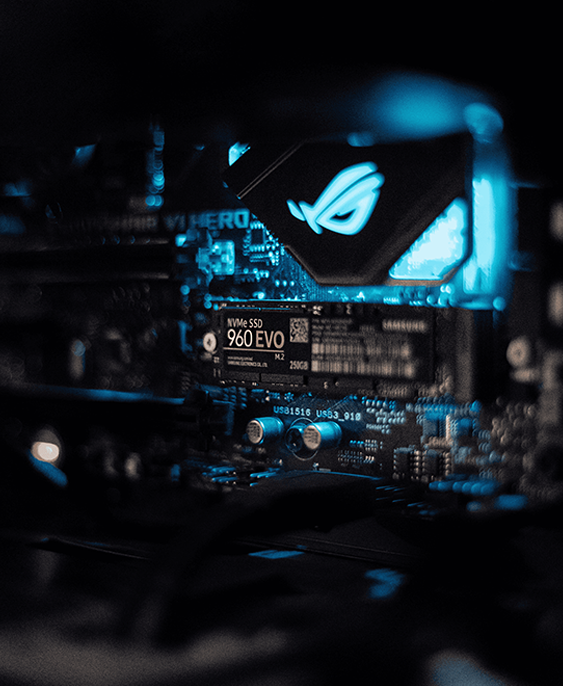
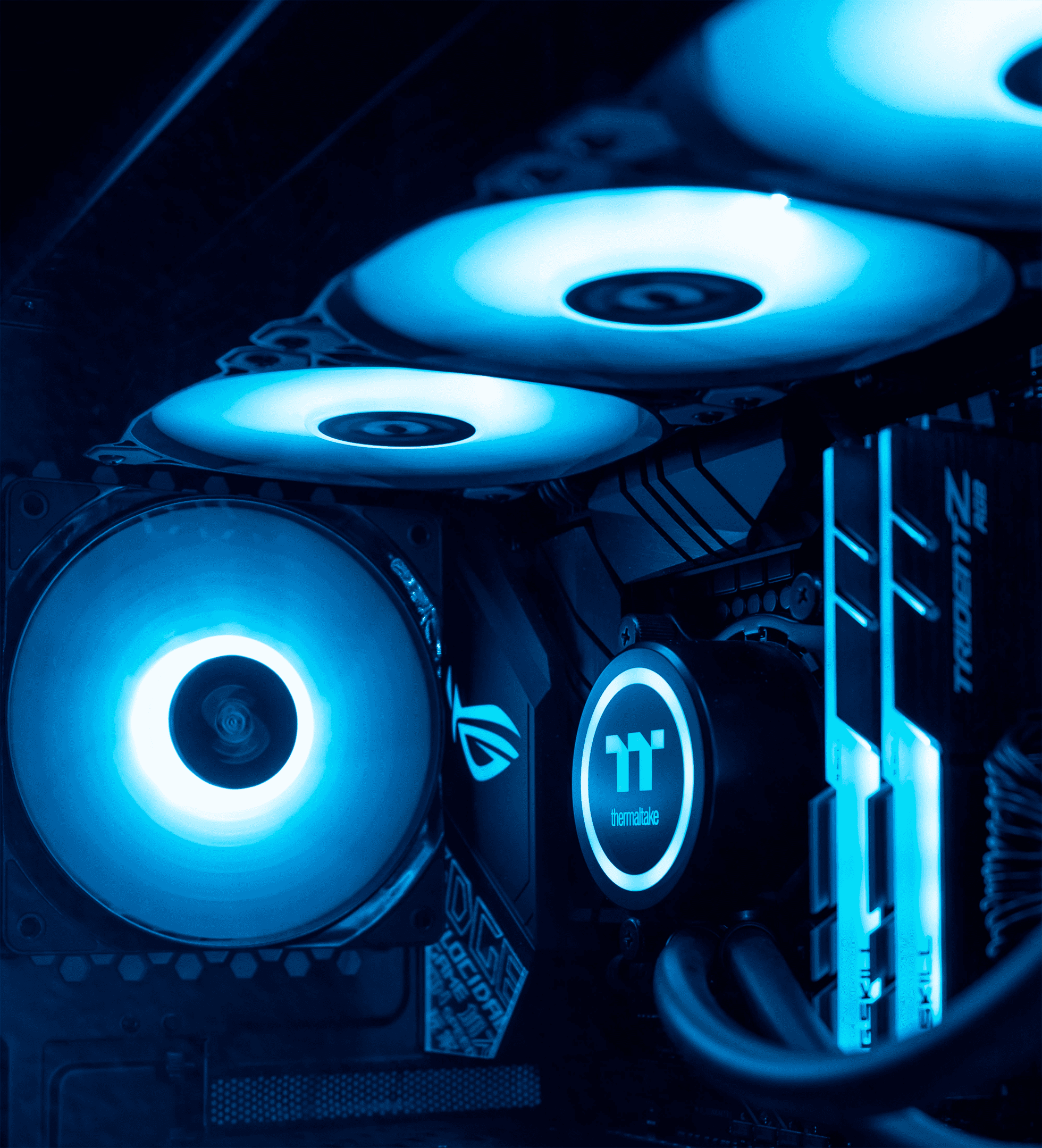
When choosing between air cooling and liquid cooling, you are essentially thinking about getting optimal performance from the processor during intensive use, with as little noise as possible. Both air and liquid cooling offer similar performance in terms of cooling capability, and both offer aesthetic value, too, with RGB models available from solid brands such as Corsair, CoolerMaster, BeQuiet! and Noctua.
All CCL branded Horizon and Nazare systems come with the option of air or liquid cooling, and use only the highest quality components for CPU temperature control. You can upgrade to higher power cooling systems, and this will increase performance in most cases.
You should choose a cooling system that offers low acoustic noise, low temperature, and an aesthetic that fits with your requirements. All of these features are detailed on the product page, so be sure to select the option that is right for your needs.
Modern gaming PCs don't need to perform well, they need to look good, too. Adding some RGB lighting to your battlestation is the perfect way to show off your hardware, and get in the mood with your favourite titles. Corsair, MSI, ASUS and other brands of motherboard all offer an intuitive control dashboard to set up and change your RGB lighting, being compatible with both third party and same-brand components.
Most Horizon cases are equipped with some RGB features, such as the case, liquid cooling system, graphics card and even the RAM sticks - so you have some great options to start with! If you want to go that bit further with the RGB aesthetic, why not add a mouse and keyboard with customisable RGB?
Our range of RGB mouse and keyboard bundles allow you to express your creativity and look great in the process - together with individual RGB strips for your gaming space, PC case fan lighting and internal addressable RGB (ARGB) on components, the aesthetic is complete!
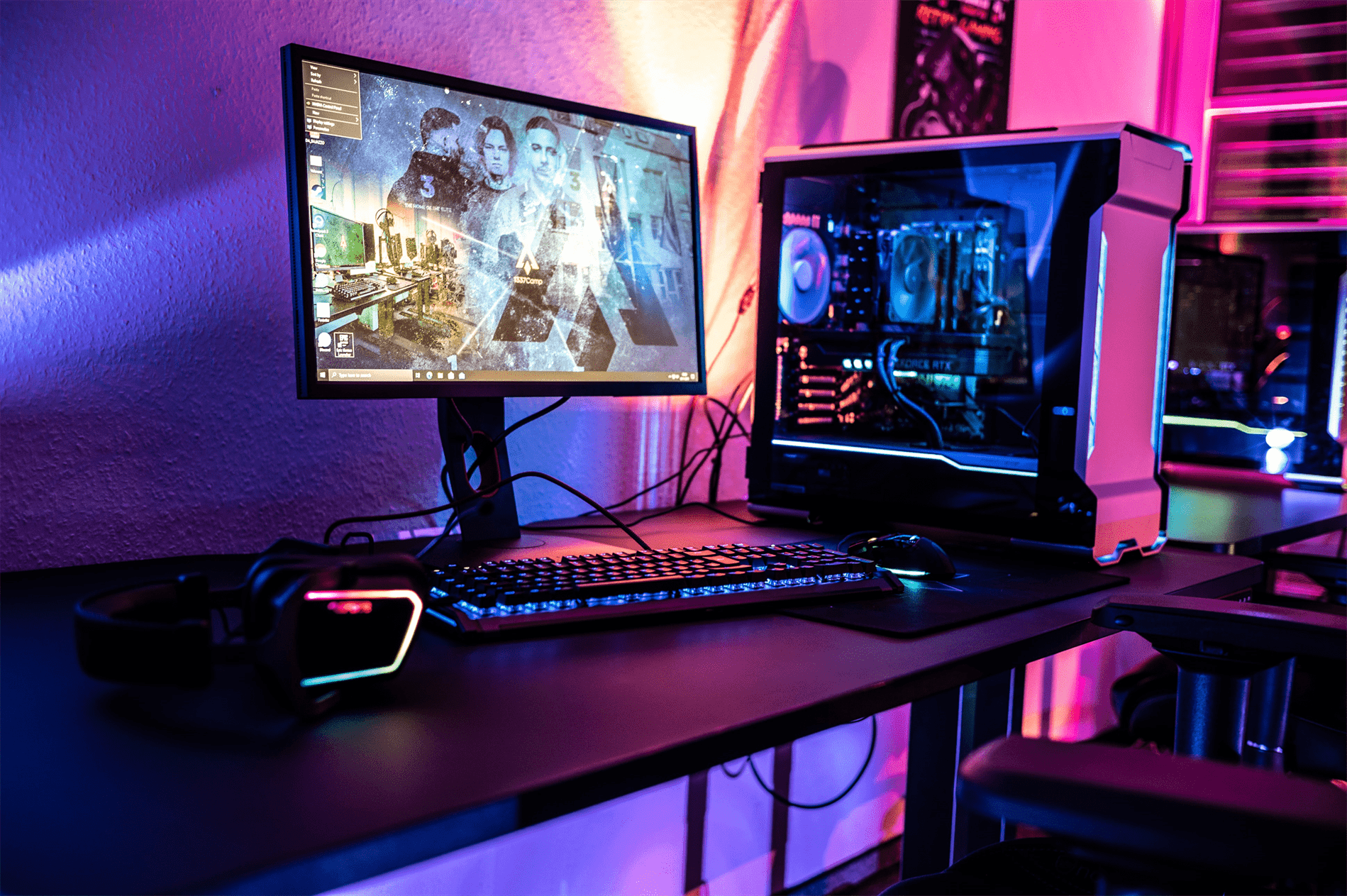
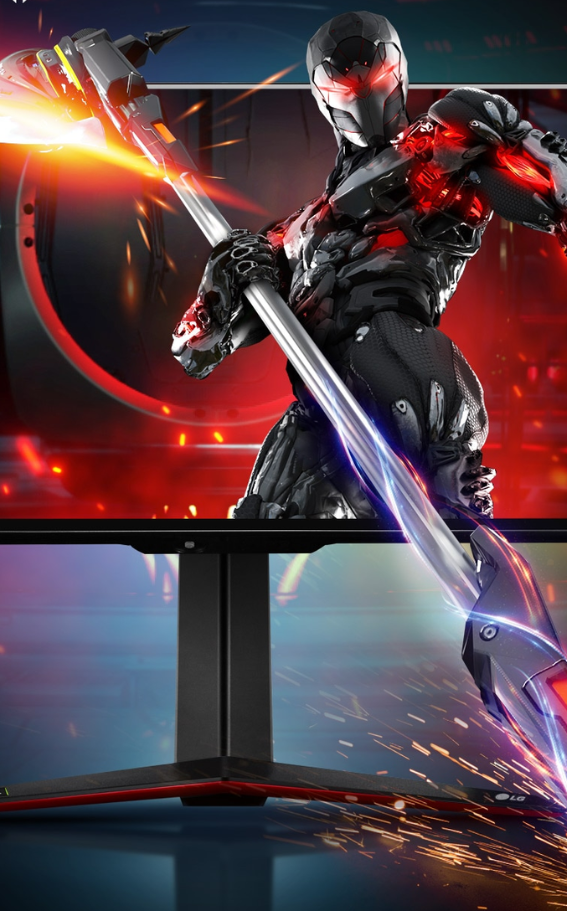
4K Gaming - To experience gaming at such a high resolution (3840 x 2160), you need a powerful graphics card, and both NVIDIA and AMD have options at various price points. The RTX 3070 Ti is a great entry to 4K gaming, along with high specification graphics cards like the RTX 3080 and RTX 3090. From AMD, the Radeon RX 6800 XT can compete closely with the RTX 3080 and RTX 3090 in some games at 4K.
8K Gaming - For unparalleled gaming at 8K resolutions (and beyond) the RTX 40 Series cards are the most powerful graphics cards ever designed. The RTX 4080 and the RTX 4090 offer up to 4x performance versus the previously unmatched RTX 3080 Ti/RTX 3090 Ti predecessors.
There are multiple processors that will produce high framerates and ultra quality graphics with the RTX 3070 Ti at 1080p and 1440p, but at 4K and above, a well-matched processor is required. This will ensure you don't experience any bottlenecks whilst gaming, where the CPU cannot keep up with the amount of information sent from the GPU.
For example, to get reliable and consistent framerates at 4K, the RTX 3070 Ti should be paired with an AMD Ryzen 5 3600 or Intel Core i5-11400 at a minimum for 4K High settings. At 4K Ultra settings, you may experience some bottlenecks, however.
When choosing a 4K or 8K capable PC, your monitor choice is vital; not only will you need to run games at this high resolution, but the framerate and response time should be adequate for gaming.
All PCs built at CCL undergo extensive testing and our engineers choose specific processors for builds to ensure the least amount of bottlenecks with today's games. If you want to check a CPU vs GPU bottleneck, we recommend CPU-Agent's bottleneck calculator.
Yes. We offer finance options, with flexible payments depending on the price of the gaming PC.
You can purchase your new gaming PC with PayPal Credit. PayPal credit offers 0% finance options for up to 48 months, or you can use PayPal Pay in 3 to pay for your PC in 3 monthly, interest free installments.
Whether you choose a Custom Gaming PC, Next Day PC, a Horizon or Nazare system, you are covered and protected by a three year warranty with MendIT®, a leading UK IT repair centre. MendIT® only employ fully trained and accredited engineers - this means every repair is undertaken with the greatest of care and efficiency.
More information on our warranty can be found here: CCL Warranty
Competitive gaming PCs need to be able to handle games at high framerates and in high resolution. The processor can often do the work of a graphics card, using integrated graphics. An AMD Ryzen processor with integrated graphics, for instance, can enable you to play games such as VALORANT at over 150 FPS, CS:GO at over 130 FPS and Fortnite (Competitive DX12) at around 60 FPS. All without the need for a dedicated graphics card and in 1080p Full HD. Unfortunately, you will need to lower the graphics quality to get these framerates. For the best performance, pairing an AMD Ryzen processor with a dedicated GPU is always the best option.
Some Intel processors come with Intel UHD graphics integrated into the CPU, but - again - for best performance you should use a dedicated graphics card. Your PC will then excel in all forms of Esports gaming, and allow you to stream in HD resolutions at the same time. With Intel's intelligent hybrid technology you will receive all the power you need while gaming, and not have to worry about applications slowing you down.
For more information on the best competitive gaming PC, check out this Esports PC Buyer Guide.
For video editing, the processor that benchmarks extremely well is the Intel Core i9-12900K/KS/KF, which seems to be standard fayre in video editing PCs and workstations. With amazing performance (alongside dedicated graphics cards) in 4K video editing, far ahead of AMD's 5000 series, the Core i9 12th-Gen CPU is the best choice.
Intel have performed extremely well for 3D designers in recent years, and although AMD have consistently aimed to provide workstation performance, Intel's 12th-Gen Alder Lake CPUs take the win in 3D applications like Blender.
A workstation that includes a Core i9 CPU, decent memory (32GB+) and a powerful GPU such as the RTX 3080 Ti will ensure you get the best 3D editing results, smooth playback and fast rendering.
For more information on the best creator PC, check out this Creator PC Buyer Guide.
The Intel Core i7-12700K operates at over 60 FPS in 1440p with cards such as the NVIDIA GeForce RTX 3080, and would be the ideal choice for a 1440p gaming rig. Games such as Red Dead Redemption 2 (95 FPS), Assassin's Creed Valhalla (75 FPS) and Watch Dogs legion (85 FPS) show how the performance cores cope with demanding games, without any issue.
It used to be that AMD had the market sewn up for gamers on a budget, but in 2022 we are seeing Intel close the gap. The AMD Ryzen 9 5900X Zen 3 CPU and Intel Core i9 12900F Alder Lake-S CPU have a price difference of almost £100 (June 2022), yet the extra money is well spent if you want cutting edge technology from the Alder Lake chip. An AMD Ryzen 9 5900X, however, will perform extremely well in gaming scenarios as well as workstation workloads. If you want to save some of your budget for extra cooling and a GPU, then AMD presents value for money. Intel, on the other hand, present you with the latest technology that continues to fall in price.
AMD products that have integrated graphics (APU)are denoted with a G for graphics in the model number. With Intel chips, most will have onboard graphics unless denoted by an F in the model number.
Absolutely. Whether you choose liquid or air CPU cooling, to ensure you have the lowest thermals on your processor, you should opt for a third party cooling solution. That's not to say the bundled fans from AMD and Intel are not very good - they are, in fact, solid performers under full stress. That said they would not be recommended in a gaming PC or workstation PC that will be on for long periods.
It was once suggested that liquid cooling could offer superior cooling over air (fan) cooling. Now, however, manufacturers such as BeQuiet!, Corsair and CoolerMaster have taken their R&D to the next level, and can offer extreme cooling from air cooling fans. The heat from these fans, however, are then relocated inside the chassis, so case fan management and good airflow is a must.
Liquid cooling is still a very good option, though. Not only does it provide you with a beautifully lit chassis with RGB on most coolers, they also enable you to dissipate the heat out of your case easier, via the fans in the radiator. Of course, liquid cooling comes with drawbacks, such as more moving parts and potential breakdowns, as well as the need to refill liquid, but overall, with manufacturers such as MSI, you will be buying a solid, reliable cooling system.
A popular misconception, there is no such thing as an overkill CPU for a gaming PC. Whatever high-performance processor you choose will ensure you prolong the life of your system, being able to take care of background and application tasks while you play your games or stream your content.
A Threadripper processor may be considered overkill for gaming, but were never truly designed for gaming. Threadripper CPUs are predominantly workstation processors.
The best option is to purchase the CPU you can afford in your budget, which will ensure the most smooth running of operations, and enable you to multi-task with ease.
The most popular choice for gamers is an Intel CPU with 2.3Ghz to 2.69Ghz and 3.3Ghz to 3.69Ghz. Intel have a 68.42% share of the gaming market on Steam (Source: Steam hardware charts) in April 2022.